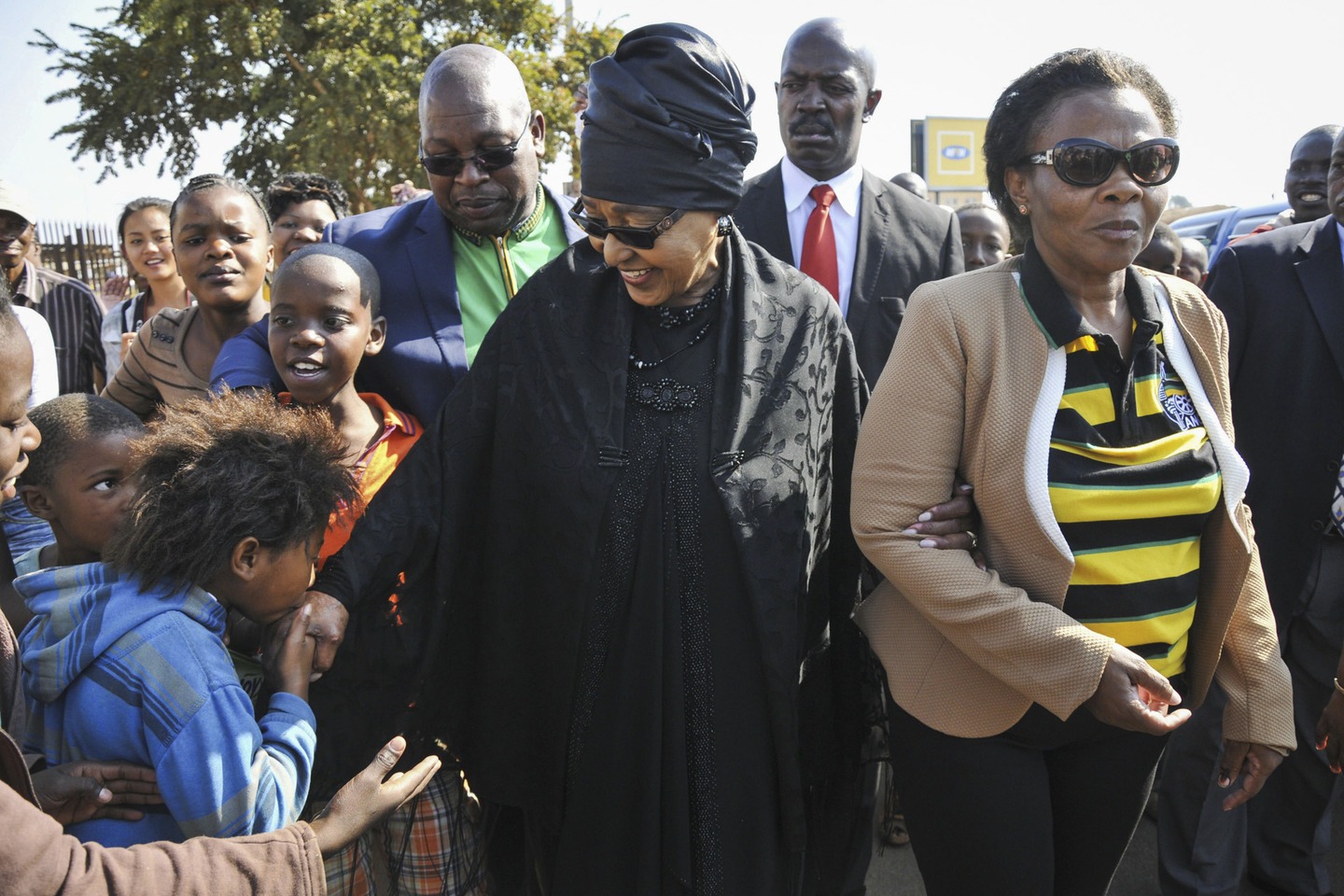The African National Congress (ANC) has brushed off political scandals and economic discontent to win a fifth consecutive South African election, results showed on Friday, although the party fell short of regaining a two-thirds majority.
With all votes counted, the ANC had a 62.2% share of the vote, down from the 65.9% it won in the 2009 election, according to the national election commission. The result guarantees a second five-year term for the controversial president, Jacob Zuma.
The leading opposition party, the Democratic Alliance, was on 22.2%, up from 16.6% at the last elections. Often criticised as white dominated and redolent of the apartheid era, the party said it gained 1.1 million new voters, including 700,000 votes from black South Africans.
Two new parties that have captured global media attention met very different fates at the ballot box.
The Economic Freedom Fighters, led by firebrand Julius Malema, who cites Hugo Chávez and Robert Mugabe as inspirations, won more than 1 million votes to come in third on 6.3%.
But Mamphela Ramphele, a former political and romantic soulmate of black consciousness founder Steve Biko, failed spectacularly. Her party, Agang SA, launched with much fanfare last year promising to “rekindle the South Africa of our dreams”, secured just a fraction of a percentage point. “Mamphela has destroyed her political brand and value,” Zille said on Friday. “She had a big brand value before voters rejected her.”
Agang SA never recovered after Ramphele surprised her own party by agreeing to be the Democratic Alliance presidential candidate. Her kiss for the cameras with Alliance leader Helen Zille proved to be a kiss of death – the pact collapsed within a week. Turnout was put at 73% of the 25 million South Africans – roughly half the population – who registered for the national and provincial elections held on Wednesday.
The Democratic Alliance achieved its best ever result, topping 4 million votes, although its growth failed to meet some expectations. Zille said: “We are on track to achieve our historic mission of realigning politics and unseating the ANC from national government in the next decade. I’m hoping that it’ll be a bit earlier than that.”
The relatively unknown African Independent Congress (AIC) surprised many pundits by securing nearly 100,000 votes, something which one official attributed to its similar name, similar logo and proximity to the ANC on the ballot paper.
Among the biggest losers was the Congress of the People, a party that broke from the ANC

The ANC won an overwhelming 62.2 percent of the vote, according to provisional results released by the South African electoral commission on Friday. As a consequence, Jacob Zuma is set to serve a second, five-year term as president.
Although the ANC’s victory was decisive, it’s showing in Wednesday’s election was weaker compared to its previous performances. The party of late anti-apartheid leader Nelson Mandela had won 65.9 percent of the vote in 2009.
Meanwhile, the pro-business DA managed to increase its share of the vote from 16.7 percent to 22.2 percent. The DA also traces its roots back to the anti-apartheid movement. Its supporters are historically mostly whites, Indians, and South Africans of mixed descent.
“We are on track to achieve our historic mission of realigning politics and unseating the ANC from national government in the next decade,” party leader Helen Zille said.
ANC dominance weakens
The far-left Economic Freedom Fighters (EFF) party trailed in third place with just 6.3 percent of the vote. But the EFF called its result “a great inspiration.” The party supports confiscating white-owned land without compensation.
The ANC has dominated South Africa’s politics since the end of apartheid more than 20 years ago. Although the party remains respected for the role it played in peacefully ending white-minority role, its hegemonic position has slowly declined over the years.
South Africa suffers from high crime and a 24 percent unemployment rate. President Jacob Zuma has also come under scrutiny for spending more than $20 million (14.5 million euros) of taxpayer money to renovate his rural homestead. Zuma claims the money was used to upgrade security.





